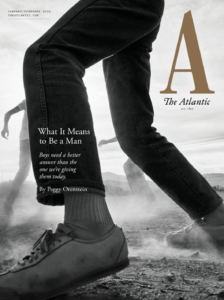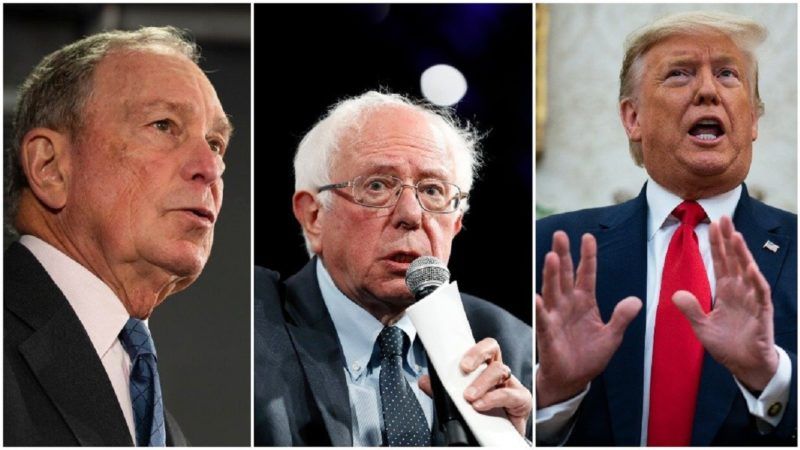Thousands of people filled a Colorado Springs arena Thursday afternoon, hours before a Trump campaign rally.
President Donald Trump is scheduled to take the stage around 5 p.m. at the Broadmoor World Arena. U.S. Sen. Cory Gardner,
a Yuma Republican, is expected to speak before the Republican
president, who is known for his boisterous rallies. Vice President Mike
Pence will also be in attendance.
Rep. Doug Lamborn, a Colorado Springs Republican and strong supporter of the president, said Thursday
that he is eager to greet Trump. The president is expected to arrive on
Air Force 1 around 4 p.m. before making his way to the Broadmoor arena.
“Donald Trump’s blue-collar boom is the largest economic expansion in history,” Lamborn said
before the rally. “The president and vice president have created
thousands of jobs in our district alone. Their pro-growth and pro-jobs
agenda has led to record low unemployment throughout Colorado and the
USA.”
https://www.denverpost.com/2020/02/20/donald-trump-rally-colorado-springs-cory-gardner/
The billionaire is skyrocketing in the presidential polls—thanks to tricks he learned as mayor.
Not long after he began contemplating running for an unconstitutional third term as mayor of New York City in 2008, Michael Bloomberg made a strategic decision: He wouldn’t move forward without first wooing the owners of New York City’s biggest newspapers. Those very papers had helped block Rudy Giuliani’s quest for a three-month extension of his second term back in 2001. America’s Mayor felt that he needed to stick around to shepherd a city still reeling from the September 11 attacks. The editorial board of The New York Times called the move “a terrible idea,”arguing that the nation had never “postponed the transfer of power” for any reason.
Bloomberg would use a similar rationale as Giuliani, claiming that the 2008 financial crisis and its aftermath required that he remain at the helm. But in fact, Bloomberg’s conversations with Arthur Sulzberger Jr. (owner of the Times), Rupert Murdoch (New York Post), and his longtime enabler Mort Zuckerman (New York Daily News) began well ahead of the collapse of Lehmann Brothers. By the time Bloomberg was ready to announce his bid for a third term, in the fall of 2008, all three papers had already endorsed the maneuver. For the Times, a third term was no longer corrupt and un-American. It was democracy at its finest: Term limits, in the Times’ revised view, “deny New Yorkers—at a time when the city’s economy is under great stress—the right to decide for themselves whether an effective and popular mayor should stay in office.”
As the legendary muckraker Wayne Barrett wrote in the Village Voice that fall, “We are all used to editorial boards making endorsements determined by their owners, but this was the first time in memory that these three proud institutions had marched in such lockstep on a policy matter after meetings between a political figure and their three owners.”
Bloomberg’s use of his immense wealth to influence politicians and advocacy groups has recently attracted significant attention, as he emerges as a late contender in the Democratic presidential primary. But his time as mayor also shows that he has had a similar impact on the media. Mayor Bloomberg thrived due to a combination of paid media, close ties to the city’s media elite, and the tacit approval of journalists who applauded his technocratic-cum-authoritarian efforts to transform New York City. It’s the same recipe he’s using in 2020, albeit on a supersized scale.
Bloomberg was first elected without much media scrutiny at all. When stories initially emerged about his long history of misogynistic commentsand the climate of sexual harassment at his company Bloomberg LP, they did not get much traction. In the summer of 2001, Democrat Mark Green was the clear front-runner, and Bloomberg was considered something of an afterthought. “Every sign,” The New Yorker’s Elizabeth Kolbert wrote just before Election Day, “points to his being a Pantalone-like figure who is parted from a great deal of money and humiliated in the bargain.” But by the late fall, Bloomberg was narrowly leading in the polls—and the media was understandably focused on the September 11 attacks, not on the mogul who would be mayor.
Bloomberg deployed the same formula in his three mayoral campaigns that he is relying on now as he seeks the Democratic nomination: Spend so much money on advertising that it overwhelms any negative reporting. The amount of money he was tossing at the election was unprecedented, but the media largely ignored it. Voters’ opinions were shaped by a relentless ad campaign rather than stories about Bloomberg.
“The free media missed the story, and missed challenging the story being propounded in paid-for media partly because it found it awkward to talk about the overriding issue of the paid-for-media story, which was money,” Michael Wolff noted two weeks after Bloomberg won his first election. “The commercials, or his ability to afford them, was, in some sense, the Bloomberg platform. They were his credentials. Precisely because he could buy this time, he was taken seriously. The Times didn’t scrutinize him because they would have had to scrutinize what, to their minds, legitimized him. Money was the record he was running on.”
As mayor, Bloomberg kept spending. He lavished hundreds of millions of dollars—possibly billions, according to some estimates—on politicians and advocacy groups. This spending muffled outside criticism. Before Bloomberg, city politics was noisy—one interest group or another was always criticizing the mayor for something. Bloomberg was able to silence much of that criticism with payments that Doug Muzzio, a professor of public affairs at New York’s Baruch College, described to BuzzFeed in 2013 as “protection money.” With so many groups paid off, there were fewer critics of his racist policing policies or the city’s skyrocketing inequality.
When Bloomberg’s wealth was addressed in the media, it was often in adulatory terms. He was the benevolent boss who paid for his aides to fly first class and stay in the Four Seasons. Reporters were also charmed by his gruff, sometimes profane manner—even if he would get occasional low marks for, say, belittling a disabled journalist. It didn’t hurt that he was friends with the owners of the city’s most influential papers. “Can you imagine how the Post would’ve blown up if David Dinkins lied about taking the subway to work every day?” asked Alex Pareene back in 2009. “The Daily News response to discovering that John Lindsay flew to Bermudaevery weekend?” But the tabloids let Bloomberg off the hook.
There was also a sense that reporters themselves largely thought Bloomberg was doing a good job. The city was less raucous, dangerous, and dirty. The people being affected by stop and frisk were poor and nonwhite and had little in common with many of the people covering City Hall. The negative stories about Bloomberg that did emerge mostly focused on his nannyish tendencies—his attempts to ban soda and smoking, for instance. These stories nevertheless played into Bloomberg’s aggrandizing narrative as a doer and a fixer—the rare disinterested politician who was only trying to do what was best for New York. Even his alarming record on civil rights and surveillance got a pass, though that may have had more to do with lingering post-9/11 anxiety than the press’s relationship with Bloomberg.
Writing in The New Yorker in 2009, Ben McGrath summed up the case for Bloomberg being made in newspapers and magazines across the city:
Crime is low, test scores are climbing, and racial tension hardly registers. Having proved unusually adept at governing the ungovernable city, Bloomberg spent much of the past few years advancing an agenda beyond the borders of the five boroughs. Environmental activists rave about his global-warming speech in Bali, in 2007, and, through his efforts with the Mayors Against Illegal Guns coalition, which he co-founded, Bloomberg has probably done as much as any politician in the country to hold weapons dealers accountable. Far more than Rudy Giuliani, who parlayed his symbolic role as the stoic face of leadership after September 11th into the honorary title of America’s Mayor, Bloomberg deserves the label.
McGrath went on to note that “the Bloomberg phenomenon, one had to remember, was never quite democratic in the first place.” That was the trade-off: Sure, the mayor might have bought an election or two (or three), but he was someone the reasonably liberal and reasonably well-heeled could get behind. New York magazine could only marvel at the man: “Michael Bloomberg Runs This Town” was the headline of a profile that declared the mayor the city’s only true power source. Even the merely wealthy had to bow at his altar: “Certainly there are other figures with real power,” wrote Chris Smith, but “their influence is circumscribed, confined to their narrow categories: real estate, culture, health care, banking. And, in terms of civic life, little of their power exists independent of their relationships with Bloomberg.”
Even Wayne Barrett, a thorn in the side of nearly every elected official in New York over a 50-year period, could make a case for Bloomberg—albeit in a lengthy piece castigating the mayor for his numerous post–first term failings.
A presidential campaign—particularly a presidential campaign in the year 2020—is different. With Donald Trump “jokingly” suggesting he could stay in the Oval Office for more than eight years, it’s hard to imagine the Times editorial board being so cavalier about term limits now. But Bloomberg is still overwhelming negative media coverage with paid advertising. He is still purchasing the allegiance of politicians and advocacy groups. And there is still a sense of awe in the media when it comes to the way Bloomberg extravagantly uses his wealth—so many stories about the prodigious salaries he’s handing out to staffers, the sumptuous food at his campaign events. These are Bloomberg’s credentials, and they are part of the lesson that he took from New York: If you can be emperor here, you can be emperor anywhere.




 Now this month’s
Now this month’s 







